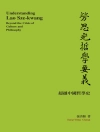Discusses interpretations of the Yijing (the I Ching or Book of Changes) during the Northern Song period and how these illuminate the momentous changes in Chinese society during this era.
This book is the first comprehensive study of Yijing (Book of Changes) commentary during the Northern Song period, showing how it reflects a coming to terms with major political and social changes. Seen as a transitional period in China’s history, the Northern Song (960–1127) is often described as the midpoint in the Tang-Song transition or as the beginning of Song-Ming Neo-Confucianism. Challenging this traditional view, Tze-ki Hon demonstrates the complexity of the Northern Song by breaking it into three periods characterized by, alternately, the reestablishment of civil governance, large-scale reforms, and a descent into factional rivalry. To illustrate the distinct characteristics of these three periods, Hon compares commentaries by Hu Yuan, Zhang Zai, and Cheng Yi with five other Yijing commentaries, highlighting the broad parameters, as well as the specific content, of an extremely important world of discourse-the debate on literati activism. These differing views on the literati’s role in civil governance prove how lively, diverse, and intense Northern Song intellectual life was, while also reminding us how important it is to understand the history of the period on its own terms.
Содержание
Acknowledgments
Chronology of Northern Song Emperors
Introduction
1. The Northern Song Historical Context
2. The Northern Song Yijing Text
3. Mission of Civil Bureaucrats: The Yijing of Hu Yuan, Li Gou, and Ouyang Xiu
4. Inner Roots of Ordering the World: The Yijing of Zhang Zai, Sima Guang, and Shao Yong
5. Coming to Terms with Factional Politics: The Yijing of Cheng Yi and Su Shi
Conclusion
Appendix I: Names and Images of the Eight Trigrams
Appendix II: Names and Images of the Sixty-four Hexagrams
Notes
Glossary of Chinese Terms and Names
Bibliography
Index
Об авторе
Tze-ki Hon is Associate Professor of History at the State University of New York at Geneseo.












